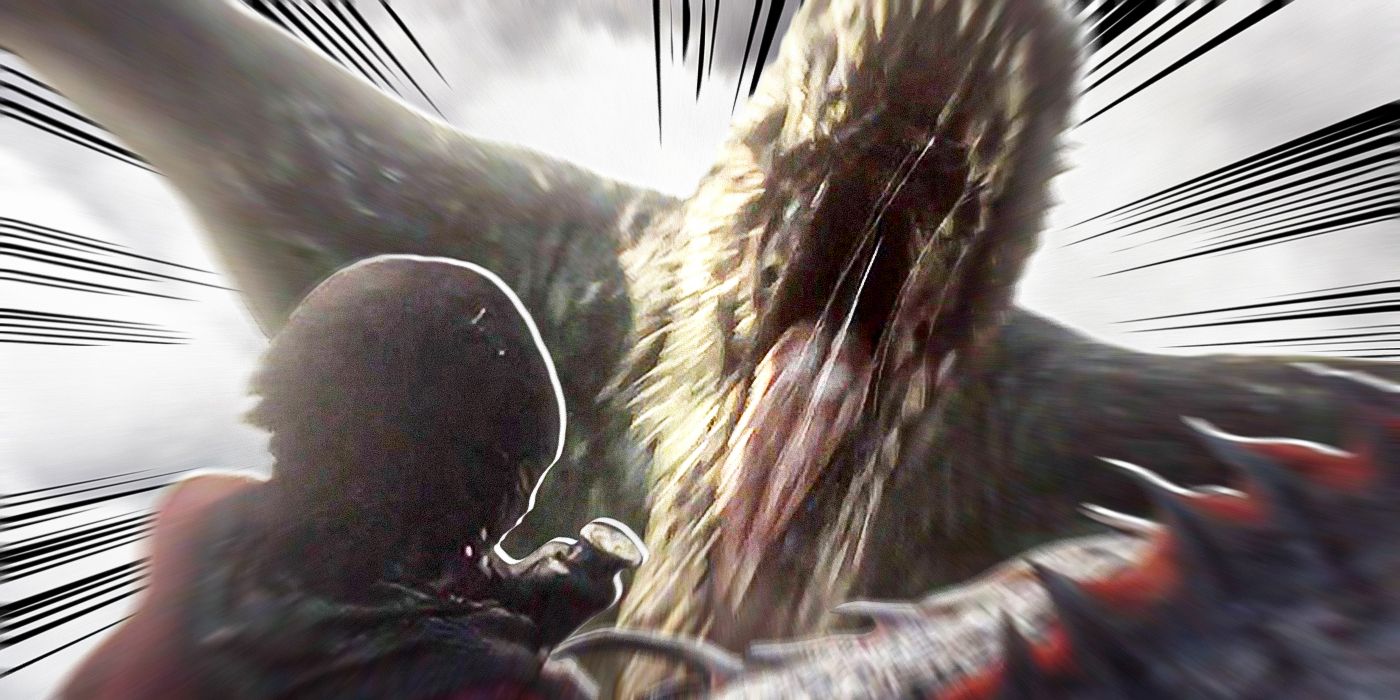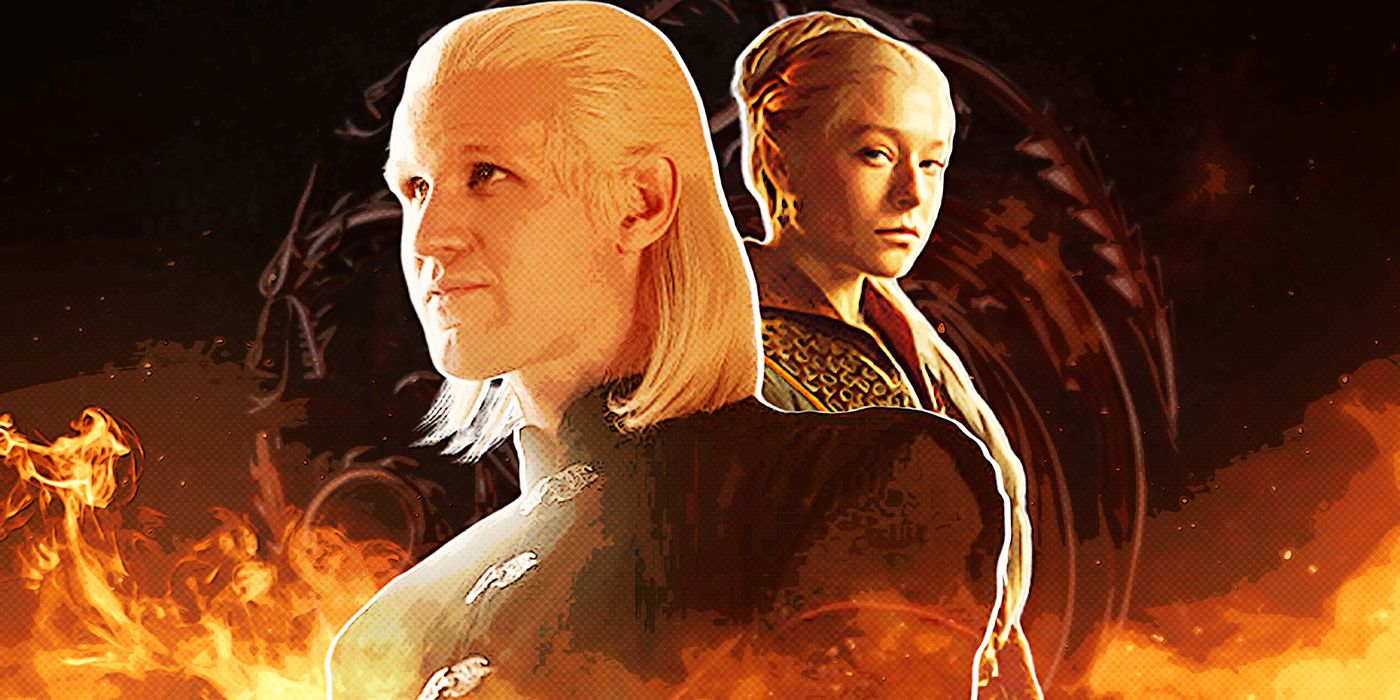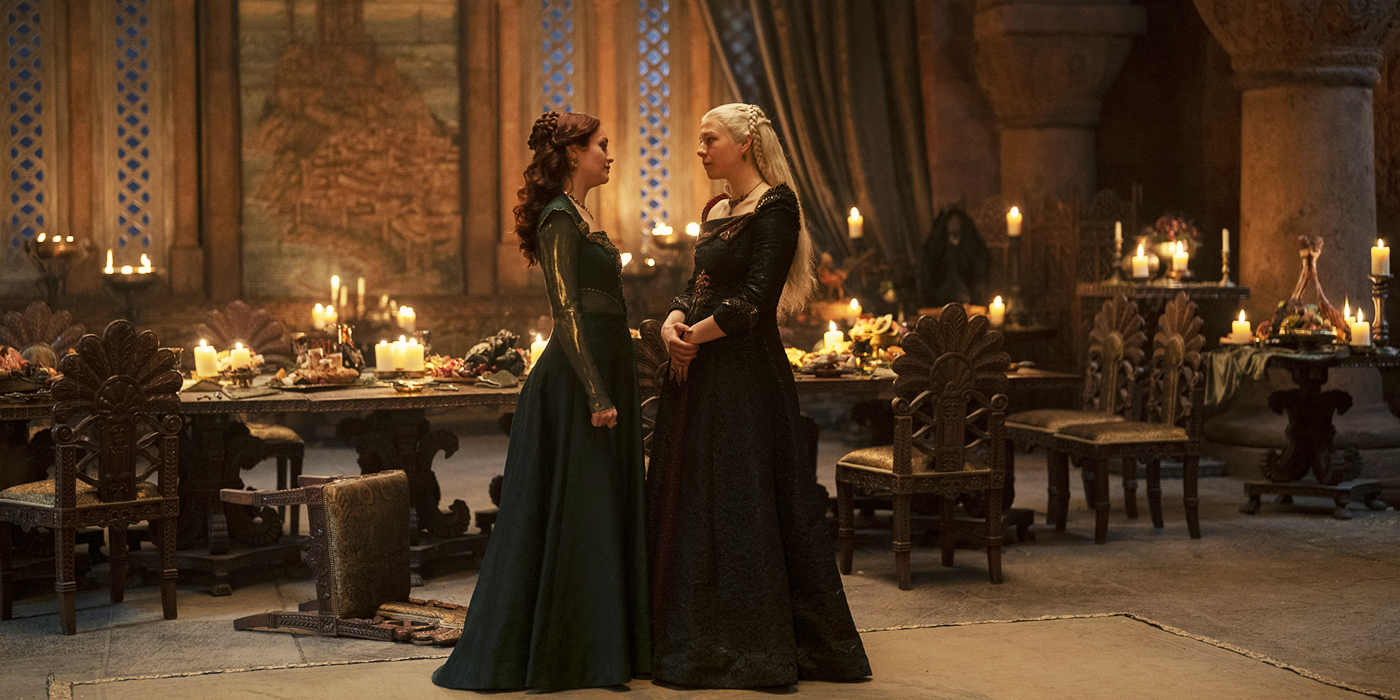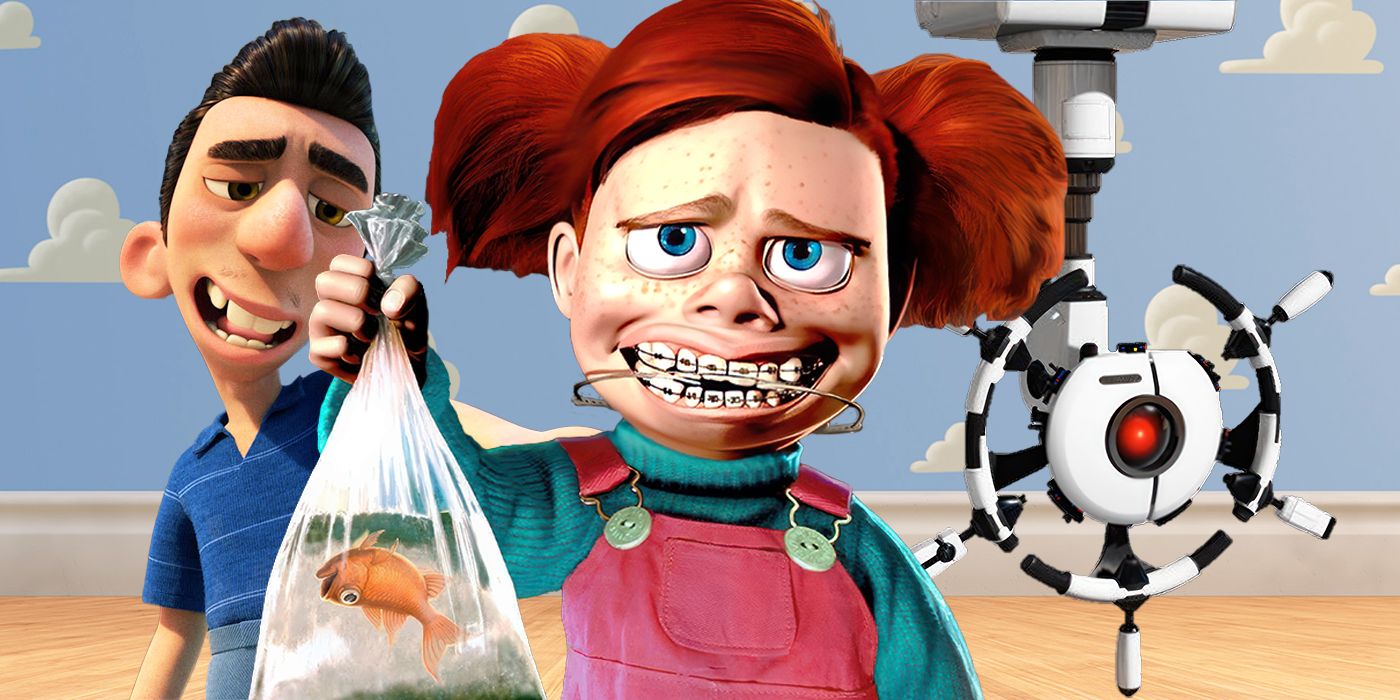The Big Picture
-
House of the Dragon
successfully develops two-dimensional figures from
Fire & Blood
into engaging characters, despite the challenges of adapting from a historical book with contradicting narrators. - The series made unnecessary changes, such as shifting the conflict from ambition to a prophecy, which detracted from the early episodes and characterization.
- The insertion of the prophecy undermined Alicent and Rhaenyra’s relationship, weakening the overall story of ambition and turning it into a story about a misunderstood prophecy and a dead king’s will.
House of the Dragon Season 1 took fans back to Westeros during the Targaryen rule. Adapted from a section of George R. R. Martin‘s Fire & Blood, the series dives into the fictional world’s history as it leads into the Targaryen Civil War, referred to as the Dance of the Dragons. But it isn’t a straightforward adaption. For one thing, the book is structured as a history with many different and contradicting narrators, forcing the show to choose their version of “the truth” in some cases. House of the Dragon had to develop characters that were originally written as two-dimensional historic figures rather than people. Still, the series did so successfully. With Season 1 covering the events right before the war, the series maintained an eventful and engaging story throughout its opening season.
Even so, it doesn’t look exactly like the novel. House of the Dragon changes around the ages and tweaks the story. Though many of these choices worked in favor of the series, some made less sense. But the worst change ended up cheapening the show’s journey. House of the Dragon slowly builds tension among the members of the ruling family, but, unlike the book, that hatred, competition, and resentment aren’t what led them to war in the show’s version. Instead, the opposing Targaryen matriarchs nearly reach peace before Viserys (Paddy Considine) accidentally reveals the Prophecy of Ice and Fire to Alicent (Olivia Cooke). She misunderstands him, and that incites the war. Making the conflict about a prophecy rather than ambition is unnecessary and devalues the devolving relationship of the family before that moment. Ultimately, this change detracts from the early episodes and the characterization. The inherent flaws of each side make this the perfect continuation of the Game of Thrones franchise, but this change takes the focus away from the excess of ambition and resentment to make it about a prophecy, thus diminishing the most important element of the Dance of the Dragons.
House of the Dragon
The reign of House Targaryen begins with this prequel to the popular HBO series Game of Thrones. Based on George R.R. Martin’s Fire & Blood, House of the Dragon is set nearly 200 years before Game of Thrones, telling the story of the Targaryen civil war with King Viserys.
- Release Date
- August 21, 2022
- Creator
- Ryan J. Condal, George R.R. Martin
- Seasons
- 2
- Distributor
- HBO
‘House of the Dragon’ Makes the War About a Prophecy
House of the Dragon‘s biggest change was making Alicent and Rhaenyra (Emma D’Arcy) childhood friends. Much of the early episodes focus on their decaying friendship after Rhaenyra’s father marries Alicent. This is for the best as it provides more intrigue for the set-up. However, it leads to the show’s worst change. After marrying Daemon (Matt Smith), Rhaenyra and her family remove themselves from Kings Landing, not seeing her father, stepmother, and half-siblings for many years. But when circumstances force them to return, Rhaenyra and Alicent nearly reconcile. Time has been hard on Viserys, who has wasted away to almost nothing, leaving his wife to handle things in his place. Rhaenyra feels for her old friend and promises to return and help despite their bitter feud.
Then, just as Rhaenyra leaves, Viserys dies, his last words discussing Aegon the Conqueror’s prophecy. However, Alicent misunderstands him, believing in his final moments, Viserys expressed a desire for their son Aegon (Tom Glynn-Carney) to take the throne instead of Rhaenyra. This death-bed change of heart is why Alicent moves forward with the war, not the many grievances she has with Rhaenyra. Of course, it makes good propaganda to counter Rhaenyra’s argument of being the chosen heir, but is it a valid reason to start a war? This shifts the focus to the prophecy, as Rhaenyra is the only one who knows it in its entirety and therefore feels she needs to rule for the realm’s safety. Fire & Blood portrays two ambitious women reaching for power, while House of the Dragon has both Rhaenyra and Alicent’s motivation rooted in something neither of them can control.
‘House of the Dragon’ Didn’t Need Another Excuse
The two women don’t need another excuse to desire the Iron Throne. Before their near reunion, Rhaenyra resents Alicent for trying to displace her and spreading rumors about her three oldest sons’ parentage. Rhaenyra also feels entitled to the throne because Viserys declared her the heir when he had no other children. Rhaenyra doesn’t need the prophecy to motivate her fight for the throne, nor does Alicent need one to fight for her son.
The two fell out years ago, and things only got worse from there. Convinced that Rhaenyra’s ascension would require the death of her family, Alicent openly campaigned for her son, recruiting allies even while he was a baby. This would be enough for her to continue to fight for Aegon’s rule, but it is hardly the only thing. In the series, the hatred between Alicent and Rhaenyra is passed on to their children, resulting in an ugly confrontation after a fight with Rhaenyra’s sons costs Aemond (Leo Ashton) an eye. Viserys disregards the pain of Alicent’s son to defend Rhaenyra, sowing even more resentment. Regardless of the history, Alicent’s father, Otto (Rhys Ifans), has long been scheming to get his blood on the throne, inheriting that desire from Otto could have motivated Alicent. To that point, Otto and several members of the King’s council planned to install Aegon as King before Viserys’ death, so why would Alicent need his final words as extra motivation?

This Is ‘House of the Dragon’s Biggest Plot Hole in Season 1
With Season 2 a long way out, fans can only speculate on how the series will overcome this dragon-sized plothole.
This Change Hurt ‘House of the Dragon’s Story
House of the Dragon spent a long time developing and tearing apart Alicent and Rhaenyra’s relationship, but this last-minute change of heart and the subsequent insertion of the prophecy made that irrelevant. Even if they were always friends and Viserys’ final words were the same, Alicent would have tried to make Aegon king. After spending so long building their hatred and resentment, the show didn’t need a prophecy to validate either woman’s actions. Doing so detracts from their character. The show makes Alicent beholden to her husband’s final words rather than her own desires. The prophecy also causes conflict between Rhaenyra and Daemon after he learns that Viserys never shared the prophecy with him. It is yet another unnecessary conflict to add to the story that weakens it. It seems the show is determined to make the prophecy a larger part of the story, so time will tell if we get more mention of it in Season 2. However, one thing remains clear, the Dance of the Dragons should be about ambition, not about miscommunication or the will of a dead king.
House of the Dragon Season 2 premieres on June 16. Season 1 is available to stream on Max in the U.S.
WATCH ON MAX





